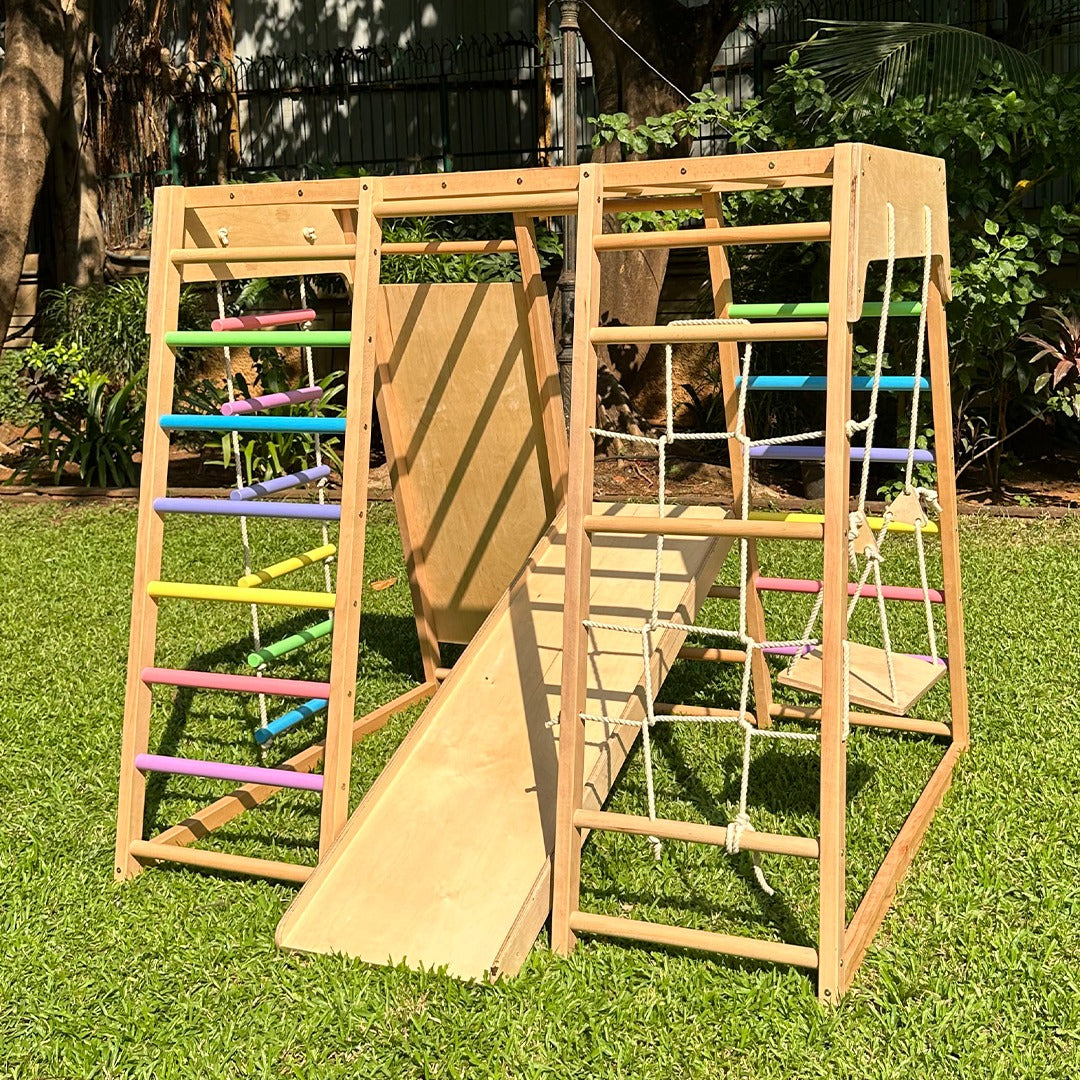Remember the first time your child wanted to walk to the neighbourhood kirana store alone, or perhaps insisted on cycling further down the lane than usual? That familiar pang of apprehension mixed with a quiet surge of pride is a feeling many Indian parents know intimately. We yearn for our children to be independent, to navigate the world with confidence, yet our cultural fabric, woven with threads of deep protectiveness and collective family care, often makes letting go a truly challenging act.
It's a beautiful paradox of Indian parenting. We want our children to be global citizens, self-starters who can make their own decisions, but we also inherently desire to shield them from every bump and bruise. We worry about 'log kya kahenge' if they stumble, or if their choices deviate from the family's well-trodden path. This isn't a flaw; it's a testament to our immense love and the centuries-old tradition of safeguarding our future generations. But how do we reconcile this deep-seated instinct with the modern imperative to foster true autonomy?
The Subtle Art of Loosening the Reins
Cultivating independence isn't about throwing our children into the deep end; it's a gradual, thoughtful process of extending trust and opportunities. Think of it like a kite string. We hold it firmly when they're young, guiding their flight. As they grow, we lengthen the string, allowing them to soar higher and explore wider, but always ready to reel them in gently when needed. This approach allows them to test their limits, learn from their experiences, and build crucial self-confidence without feeling abandoned.
Begin with Small, Everyday Choices
Even toddlers can start making decisions. Let them choose between two healthy snacks for their evening hunger pangs, or pick which outfit to wear for a casual family dinner (within reason, of course!). As they grow, involve them in simple household tasks. Perhaps they decide what vegetable to help wash for dinner, or take ownership of watering the plants. These seemingly minor choices are powerful building blocks for autonomy. They teach children that their opinions matter and that they have agency in their own lives, setting the stage for bigger decisions down the road.
Embrace the Power of 'Safe Failure'
In our pursuit of perfection for our children, we often rush to prevent any misstep. But true learning often sprouts from mistakes. Did your child forget their tiffin box at home for the first time? Instead of rushing to school to deliver it, consider letting them experience the consequence (perhaps a slightly grumbling stomach until lunch break, or sharing with a friend). Discuss what happened afterward, helping them brainstorm solutions for next time. It's a tough love approach, but it teaches responsibility and problem-solving far more effectively than constant rescue missions. This doesn't mean letting them face danger, but rather allowing them to navigate minor inconveniences and learn resilience.
Navigating Family Dynamics and Well-Meaning Grandparents
The joint family system, while a source of immense strength and love, can sometimes pose a unique challenge to fostering independence. Grandparents, with their boundless affection and often a more traditional perspective, might unintentionally overprotect. The key here is gentle communication. Involve grandparents in the process. Explain that allowing the child to, say, pick out their own rakhi for a sibling, or manage their own pocket money for a small treat, is about building character. Highlight how these small steps prepare them for the future, reassuring them that their loving presence remains the foundation.
Expanding Their Horizons, Step by Step
As children grow, their desire for independence expands beyond daily chores and choices. They'll want to explore new hobbies, join different clubs, or perhaps spend more time with friends outside of direct parental supervision. This is where our protective instincts truly get tested.
Encourage Exploration Within Defined Boundaries
If your teenager wants to join a trekking club, instead of an outright 'no,' explore it together. Research the club, understand the safety protocols, and perhaps even meet the organisers. Allowing them to pursue interests, even if they're outside your comfort zone, shows trust. For younger children, this could mean letting them lead play at the local park, discovering new games and navigating social interactions themselves, while you keep a watchful eye from a distance.
Open Dialogue: Your Child's Strongest Anchor
The most effective tool in this journey is continuous, open communication. Talk to your children about risks, about making good choices, about respecting boundaries. Instead of dictating, engage them in conversations about 'what if' scenarios. Discuss online safety, peer pressure, and the importance of listening to their gut. A child who feels heard and understood is far more likely to confide in you and make responsible decisions when faced with challenging situations.
Ultimately, fostering independence in our Indian children isn't about abandoning our cultural values or our protective instincts. It's about intelligently adapting them. It's about empowering our children to carry forward the strengths of their heritage – resilience, respect, community – while equipping them with the confidence and self-reliance needed to thrive in a rapidly changing world. It's a journey of balancing tradition with modernity, protection with trust, and always, always, with an abundance of love.
Empowering children to explore and learn independently is also at the heart of effective play. SkilloToys offers a wonderful range of safe, educational, and engaging toys designed to encourage self-discovery, problem-solving, and imaginative play, helping your child build confidence as they explore the world around them. Discover the perfect tools for your child's independent learning journey at SkilloToys.com.



